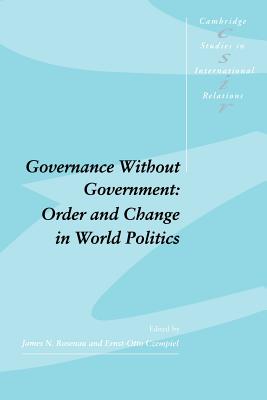A world government capable of controlling nation-states has never evolved. Nonetheless, considerable governance underlies the current order among states. In this study, nine leading international relations specialists examine the central features of this governance without government. They explore its ideational bases, behavioral patterns, and institutional arrangements as well as the pervasive changes presently at work within and among states. Within this context of change and order, the authors consider the role of the Concert of Europe, the pillars of the Westphalian system, the effectiveness of international institutions and regulatory mechanisms, the European Community and the micro-underpinnings of macro-governance practices.
| FindBook |
有 1 項符合
Governance Without Government: Order and Change in World Politics的圖書 |
 |
Governance Without Government: Order and Change in World Politics 作者:Rosenau 出版社:Cambridge University Press 出版日期:1992-03-27 語言:英文 規格:平裝 / 324頁 / 22.9 x 15.2 x 2 cm / 普通級 |
| 圖書館借閱 |
| 國家圖書館 | 全國圖書書目資訊網 | 國立公共資訊圖書館 | 電子書服務平台 | MetaCat 跨館整合查詢 |
| 臺北市立圖書館 | 新北市立圖書館 | 基隆市公共圖書館 | 桃園市立圖書館 | 新竹縣公共圖書館 |
| 苗栗縣立圖書館 | 臺中市立圖書館 | 彰化縣公共圖書館 | 南投縣文化局 | 雲林縣公共圖書館 |
| 嘉義縣圖書館 | 臺南市立圖書館 | 高雄市立圖書館 | 屏東縣公共圖書館 | 宜蘭縣公共圖書館 |
| 花蓮縣文化局 | 臺東縣文化處 |
|
|
圖書介紹 - 資料來源:博客來 評分:
圖書名稱:Governance Without Government: Order and Change in World Politics
|











